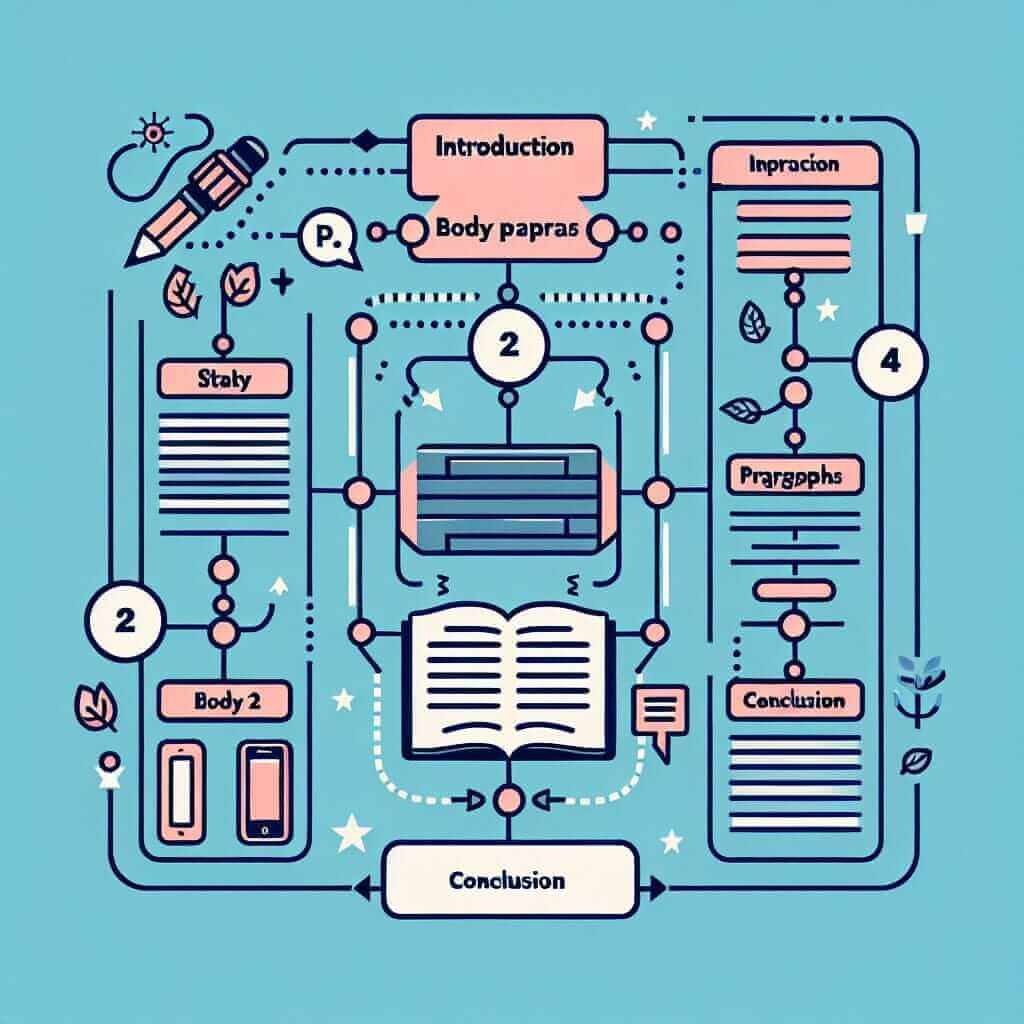The IELTS Writing section can seem daunting, especially the essay portion. It requires you to not only demonstrate your English language proficiency but also your ability to formulate and express coherent and well-structured arguments. Having taught IELTS for over 20 years, I’ve seen firsthand the challenges students face and the triumphs they achieve. This guide, drawing on my experience and expertise, aims to provide you with a clear roadmap to crafting high-scoring IELTS essays.
Nội dung bài viết
- Understanding the IELTS Essay Task
- Types of IELTS Essays
- Example Essay Question (Agree/Disagree)
- Steps to Writing an Effective IELTS Essay
- 1. Analyze the Question
- 2. Plan Your Essay
- 3. Use Strong Topic Sentences
- 4. Provide Relevant Evidence
- 5. Use a Variety of Vocabulary and Grammar
- 6. Cohesive Devices
- 7. Proofread Carefully
- Example Essay Structure (Based on the Sample Question)
- Tips for Improving Your Essay Writing Skills
- Remember:
Understanding the IELTS Essay Task
Before delving into the specifics, it’s crucial to understand what the IELTS examiners are looking for. The essay is assessed based on four key criteria:
- Task Response: Addressing all aspects of the task, presenting a clear position, and developing relevant ideas.
- Coherence and Cohesion: Logically organizing information, using cohesive devices effectively, and ensuring paragraphing is clear.
- Lexical Resource: Demonstrating a wide range of vocabulary, using it appropriately, and avoiding errors in word choice.
- Grammatical Range and Accuracy: Using a variety of sentence structures correctly and employing a wide range of grammatical structures accurately.
Types of IELTS Essays
Familiarizing yourself with the types of essays you might encounter is essential for effective preparation. There are two main types in the IELTS:
- Agree/Disagree: You’ll be presented with a viewpoint and asked to state your opinion, providing reasons and examples.
- Discuss Both Sides: You’ll need to discuss both sides of an argument before presenting your own opinion.
Example Essay Question (Agree/Disagree)
“Some people believe that the best way to learn a foreign language is to live in a country where it is spoken. To what extent do you agree or disagree?”
Steps to Writing an Effective IELTS Essay
1. Analyze the Question
Carefully read the question and underline keywords to ensure you fully understand what’s being asked. Identify the type of essay required and the specific points you need to address.
2. Plan Your Essay
A well-structured essay is key to a good score. Spend a few minutes brainstorming ideas and creating a simple outline:
- Introduction: Introduce the topic and clearly state your thesis statement (your main argument).
- Body Paragraphs (2-3): Each paragraph should focus on one main idea, with supporting evidence and examples.
- Conclusion: Summarize your main points and restate your opinion in a concise and impactful way.
3. Use Strong Topic Sentences
Begin each body paragraph with a clear topic sentence that outlines the main point you’ll be discussing. This helps the examiner follow your line of reasoning.
4. Provide Relevant Evidence
Support your ideas with relevant examples, statistics, or personal anecdotes. However, avoid using generalizations and ensure your examples directly support your claims.

5. Use a Variety of Vocabulary and Grammar
Show off your language skills by using a wide range of vocabulary and grammatical structures. However, prioritize accuracy over complexity. Avoid using words or structures you’re unsure of, as incorrect usage can lower your score.
6. Cohesive Devices
Use cohesive devices such as “furthermore,” “in addition,” “however,” and “on the other hand” to link your ideas smoothly and logically.
7. Proofread Carefully
Once you’ve finished writing, allocate time for proofreading. Check for grammatical errors, spelling mistakes, and clarity of expression. It’s surprising how many small errors can be eliminated with a careful final read-through.
Example Essay Structure (Based on the Sample Question)
Introduction:
- General statement about language learning.
- Thesis statement: State your agreement or disagreement with the given viewpoint.
Body Paragraph 1:
- Topic Sentence: Advantages of living in a country where the language is spoken (immersion, cultural context).
- Supporting Evidence: Examples of how immersion aids language acquisition.
Body Paragraph 2:
- Topic Sentence: Disadvantages or limitations of living abroad for language learning (cost, cultural barriers).
- Supporting Evidence: Explain how these factors can hinder language learning.
Conclusion:
- Summarize the main points discussed.
- Restate your opinion in a clear and concise manner.
Tips for Improving Your Essay Writing Skills
- Practice Regularly: The more you write, the more confident and fluent you’ll become.
- Get Feedback: Ask a teacher or a native speaker to review your essays and provide constructive criticism.
- Read Widely: Exposure to different writing styles and vocabulary can significantly improve your own writing.
- Time Management: Practice writing essays within the time limit to ensure you can complete the task on exam day.
Remember:
Writing a strong IELTS essay requires a combination of language skills, critical thinking, and effective organization. By following these tips and practicing regularly, you can significantly enhance your writing abilities and achieve a high score in the IELTS Writing section.